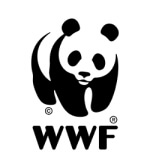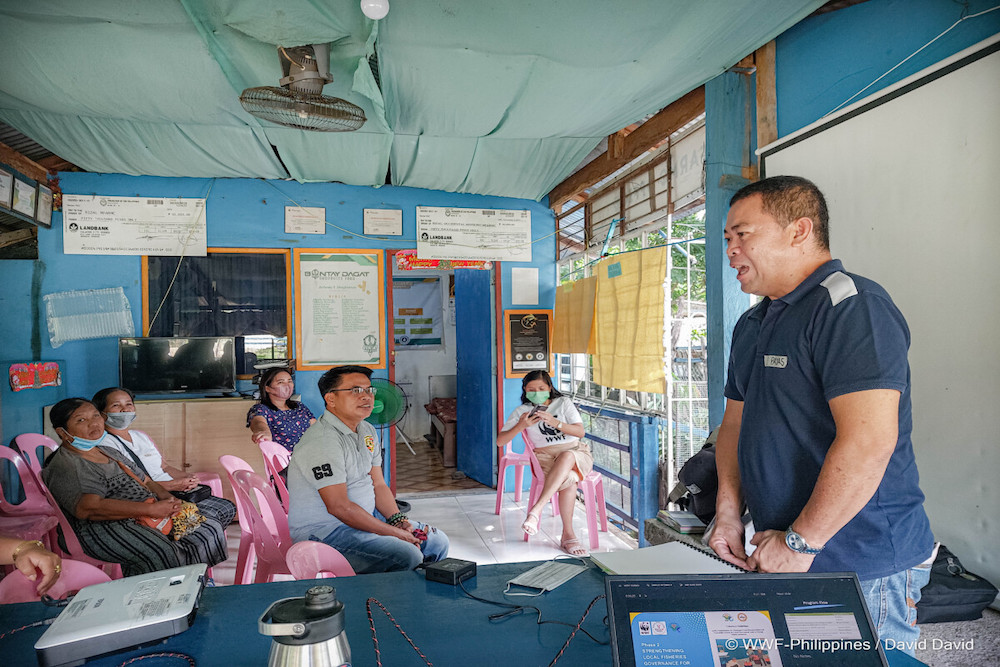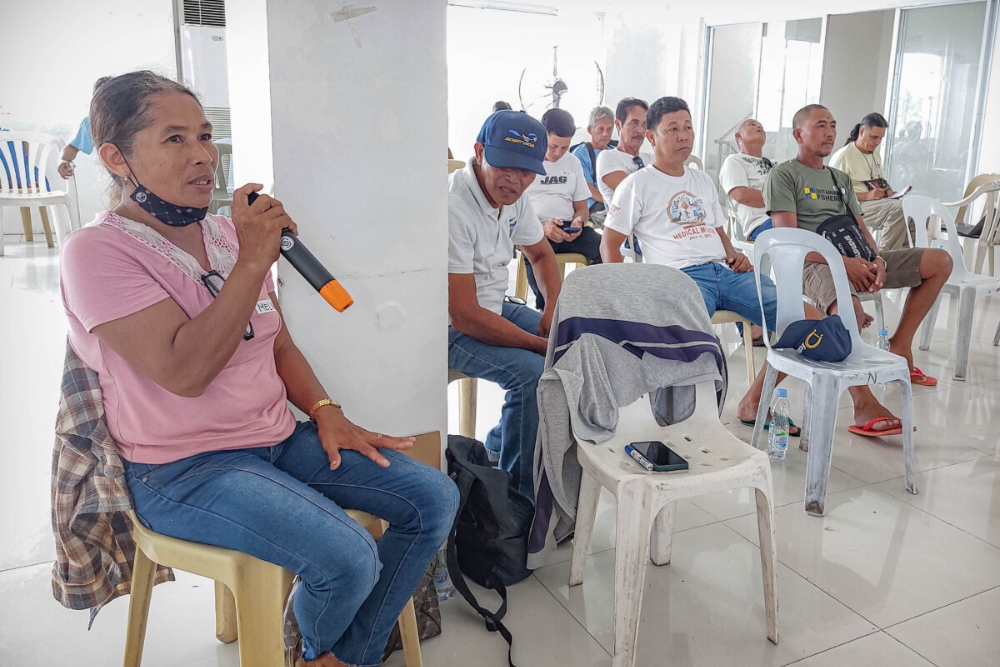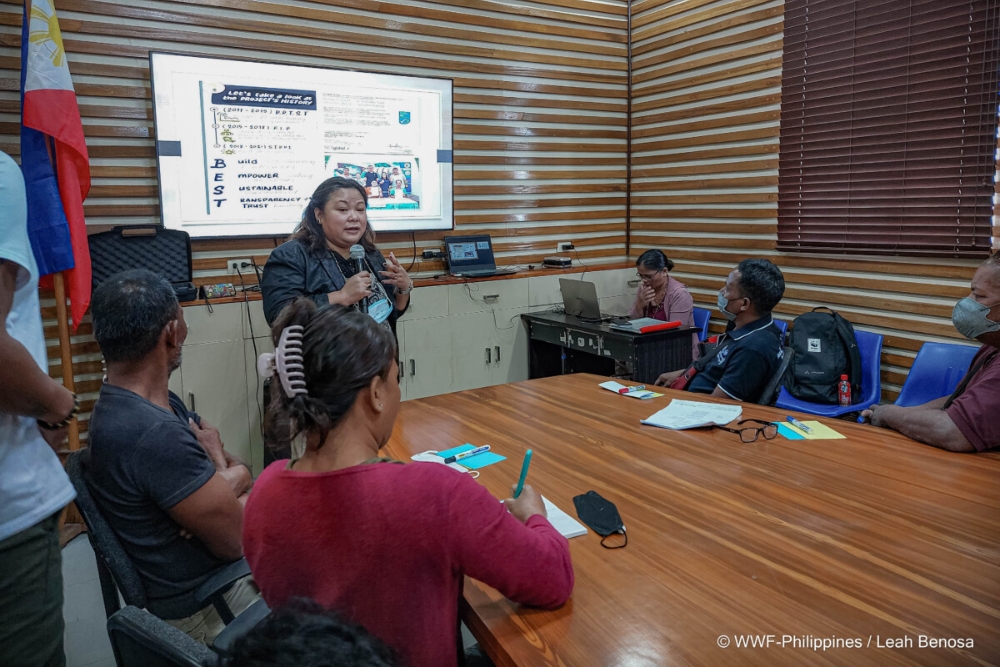Bicol and Mindoro – Local Government Units across the Lagonoy Gulf and Mindoro Strait have committed to reviewing and amending their fishery ordinances following a series of workshops conducted by the World Wide Fund for Nature Philippines (WWF-Philippines) last October.
Throughout the month, WWF-Philippines spoke with fisherfolk and local government units (LGUs) through their Municipal Fisheries and Aquatic Resources Management Councils (MFARMCs) about their respective Municipal Fishery Ordinances (MFOs).
Along Lagonoy Gulf, the LGUs of Malinao and Malilipot in Albay; Bato, San Andres and Virac in Catanduanes; and Sagnay, Tigaon, Presentacion and San Jose in Camarines Sur, all committed to reviewing their MFOs.
Along Mindoro Strait, meanwhile, the local government of Calintaan committed to amending their MFOs, while the LGU of Rizal has already completed their revisions.
Intended revisions include the addition of guidelines on catch reporting and vessel monitoring measures, guidelines for the management of fish aggregation devices, a detailed outline of the boat registration and licensing process and guidelines on how to establish an MFARMC.
“We started the workshop with different understandings of how we are supposed to be managing our fisheries. Through WWF-Philippines’ help we have had the chance to talk to our neighbors, to look at our policies and to see what we are doing incorrectly and what we can improve,” said Catanduanes Chief Fisheries Section of the Provincial Agriculture Services Office (PASO) Maria Elena V. Tabuzo.
“Our MFO was created back in 2002 and is not really applicable to the present situation. Our ordinance is inconsistent with the amended fisheries code, and as such, it is time we amended it,” said Calintaan Councilor Ronald N. Paglicawan.
WWF-Philippines’ Sustainable Tuna Partnership 2 (STP 2) program is assisting local governments align their MFOs as part of their push for sustainable tuna fisheries. Differing understandings and interpretations of BFAR’s policies have led local governments to enact disparate MFOs.
Tensions can arise between LGUs without uniformity in MFOs. Differences in understanding and awareness of BFAR’s policies can also lead to the insufficient or incorrect implementation of ordinances.
By aligning the MFOs of the LGUs across the Lagonoy Gulf and along Mindoro Strait, WWF-Philippines is helping to create a policy environment in which sustainable fishery practices can thrive.
“What we need is for everyone to be working together to save our seas. We need everyone to be on the same page even on a policy level, if we are to protect our fisheries and uplift our communities,” shared STP Field Manager Marietta Calacal.
The STP 2 team will continue meeting with coastal communities along the Lagonoy Gulf and Mindoro Strait to help align their MFOs.





